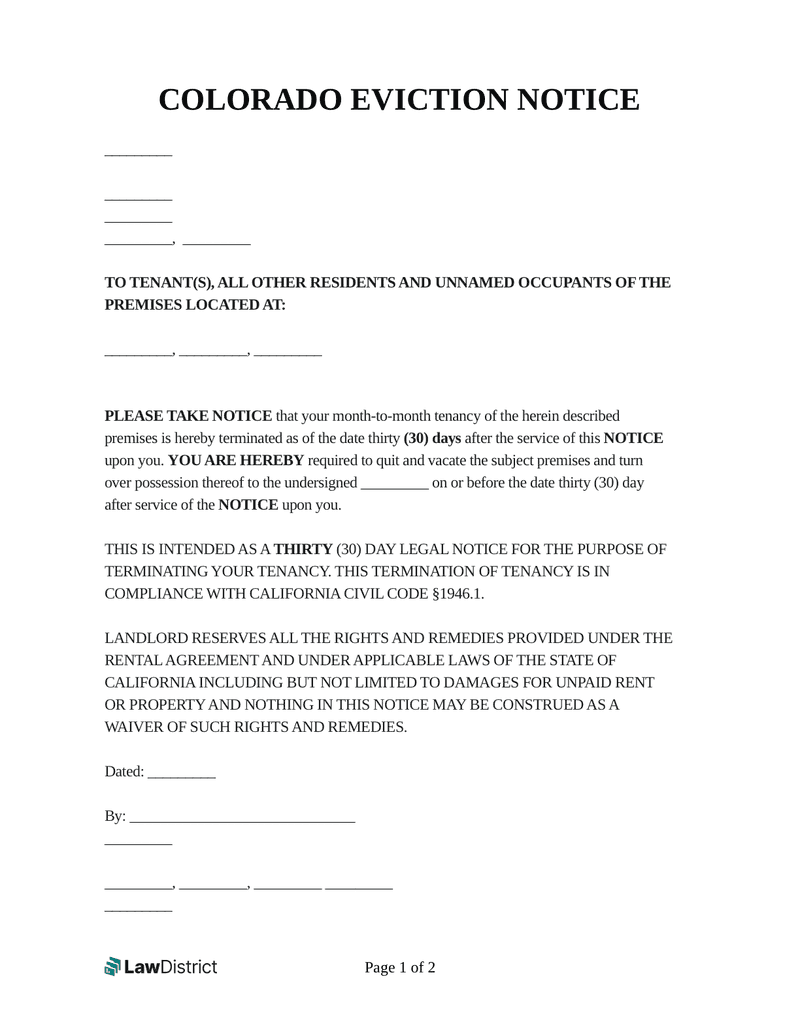An eviction notice for lease violations or non-payment of rent is officially called a Demand for Compliance or Right to Possession Notice (JDF-101) in Colorado. Alternatively, there are also Termination Letters, which can be used to end a lease without cause.
It’s important to remember that a legal eviction in CO can only be made for a number of acceptable reasons. This means that landlords must provide a valid basis along with the correct amount of days’ notice in order to comply with the legal eviction process within the state.
Not using the correct Colorado legal document, in this case, can lead to delays or even court dismissal of the eviction, so it is important to choose the right type.
10-Day Eviction Notice (Non-Payment)
If a tenant doesn’t comply with the rental payment schedule, the landlord may present them with a 10-Day Notice to Quit. This obliges them to pay rent or quit within 240 hours.
If the tenant complies and pays the rent then the notice will be nullified. If they refuse to pay or vacate the property, the landlord will be able to pursue the matter further through the courts.
10-Day Eviction Notice (Non-Compliance)
In the case of a lease violation, the landlord may issue a 10-Day eviction notice. This will often give the tenant 10 days to correct the breach before they will be obliged to leave the property.
Month to Month Termination Letter
Landlords with tenants on flexible monthly rental agreements may end the tenancy without cause, as long as they provide a Month-to-Month Termination Letter. If this is used, the tenant must leave the property within a set period of time depending on how long they’ve been in residence.
The amount of notice you must give is assessed by the following time frames:
- Under 1 week: 1 days’ notice
- 1 week - 1 month: 3 days’ notice
- 1 month - 6 months: 7 days’ notice
- 6 months - 1 year: 28 days’ notice
- Over 1 year: 91 days’ notice
Be aware, however, if the landlord continues to accept rental payments during this period, the notice will be considered null and void. This does not include any payments of owed back rent.
